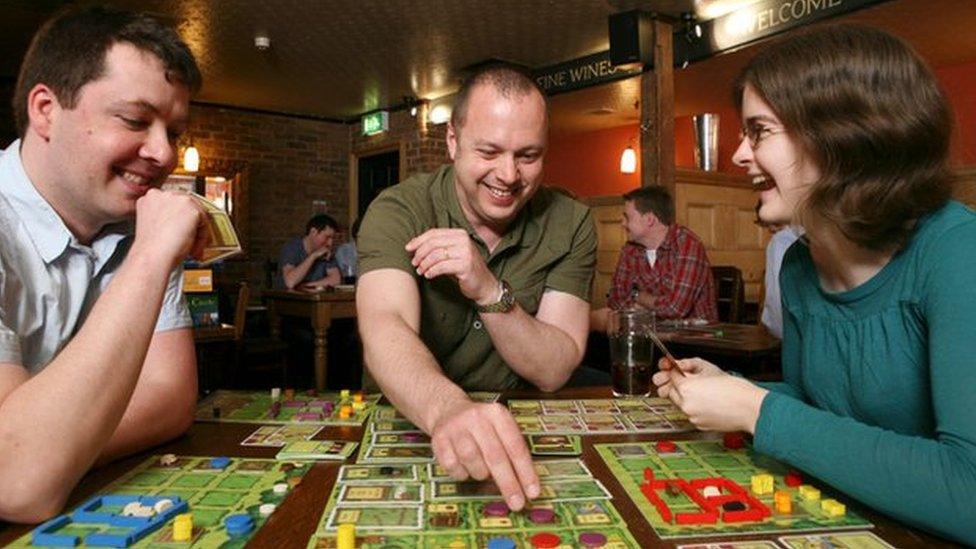Leeds museum scores with retro Subbuteo collection
- Published
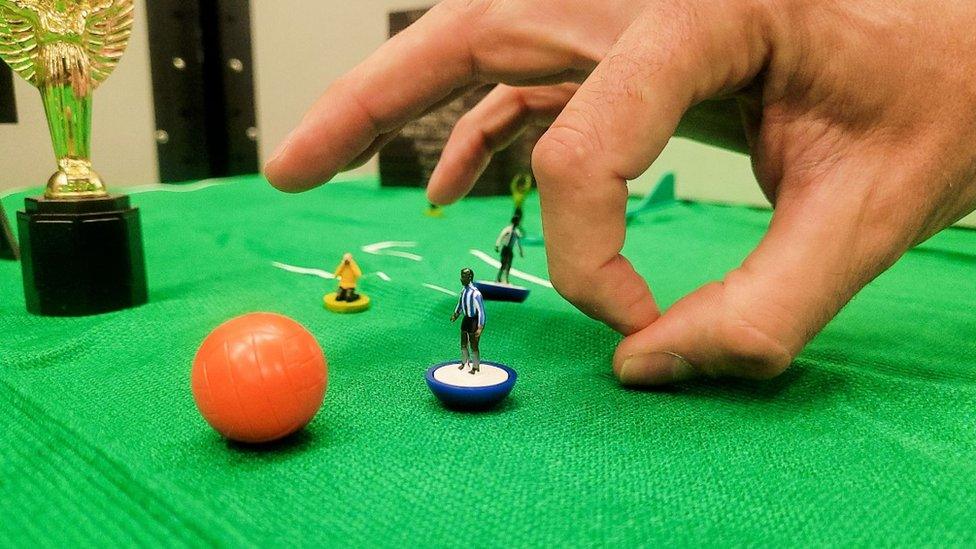
Playing Subbuteo involves dexterity and skill in flicking the playing figures
Generations of players have delighted in the finger-flicking football game Subbuteo. While it has enjoyed a resurgence sparked by lockdown, a vintage collection of the game is being given a rare run-out in Leeds.
Created by RAF serviceman Peter Adolph in 1947, it is 75 years since the cult classic was first brought alive.
The game inventor crafted the early miniature players from flat cardboard which were fixed into the buttons of his mother's clothing and weighted down with lead washers.
It was the start of a phenomenon where players could pit their fancy fingerwork against each other on a pretty even playing field.
Over the decades, the game's popularity skyrocketed and it was eventually acquired by Leeds-based board game giants Waddingtons before later being taken over.
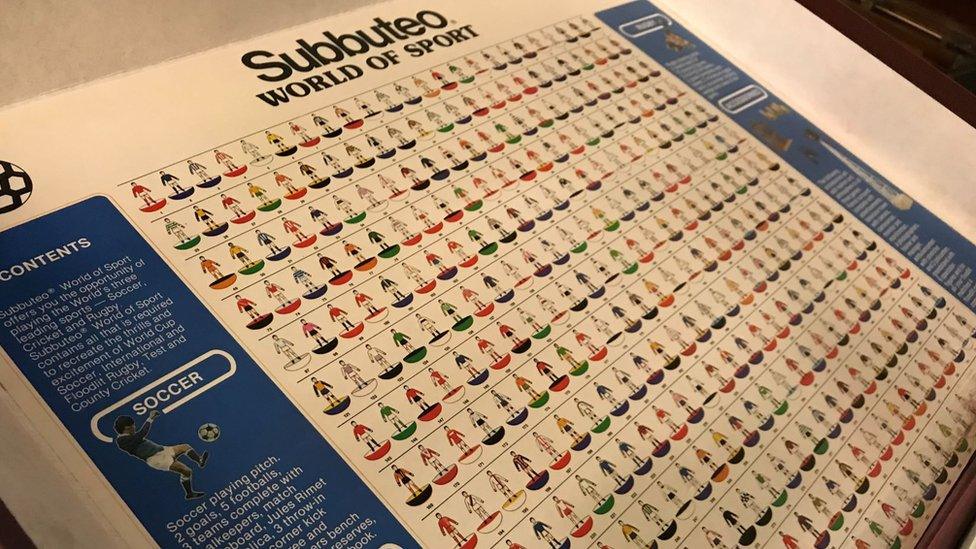
The game has grown with hundreds of teams from all over the world being represented
For the most hardcore "flick to kick" enthusiasts, there exist hundreds of different teams organised by leagues and country with England's Lionesses recently being added in the Subbuteo line-up.
But the more traditional versions have been resurrected by Leeds Museum, alongside some "exciting new additions" which have come from the personal archive of Victor Watson, the last managing director of Waddingtons.
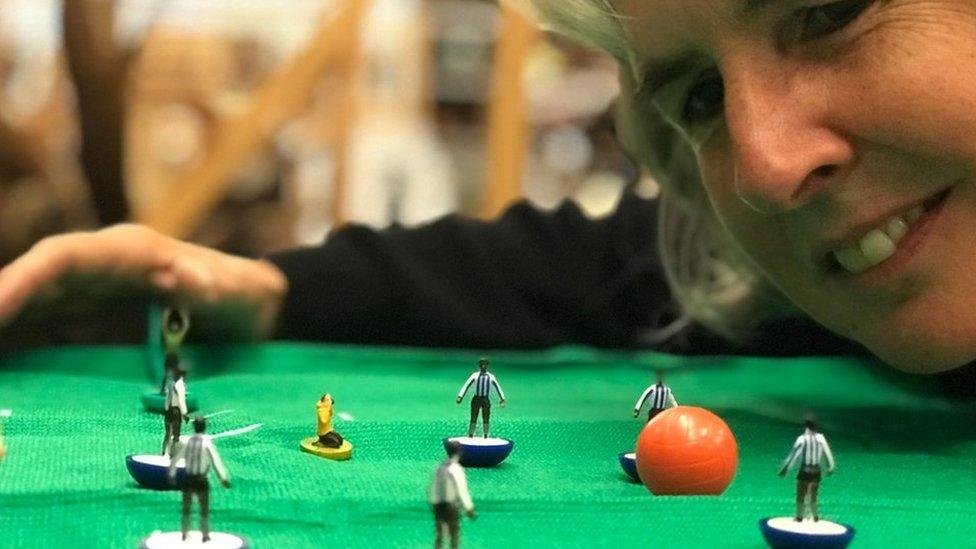
Kitty Ross believes its popularity comes from players being able to immerse themselves in the game
Curator Kitty Ross said: "We have this fantastic 1978 World Cup Subbuteo set which must have absolutely been one of the top-notch things to get, because like Lego, you got it in little boxes and built up your collection.
"It's an enormous full set and comes with a journalist pointing a camera, cheering fans, a policeman and and even a player on a stretcher."
For those keen to get the full immersive experience of the beautiful (miniature) game, Kitty picks out the 1973 vinyl album of The Subbuteo Sound. Billed as providing "all the thrilling sounds of real-life international football", it was designed to add an authentic atmosphere to games.
Kitty explains: "The game itself is a very simple concept, but its popularity stemmed from how it tapped into a love of sport and how it allowed players to use their imaginations and immerse themselves in their matches.
"The huge array of accessories and personalisation which were made available were testament to how seriously some players and collectors took the game too."
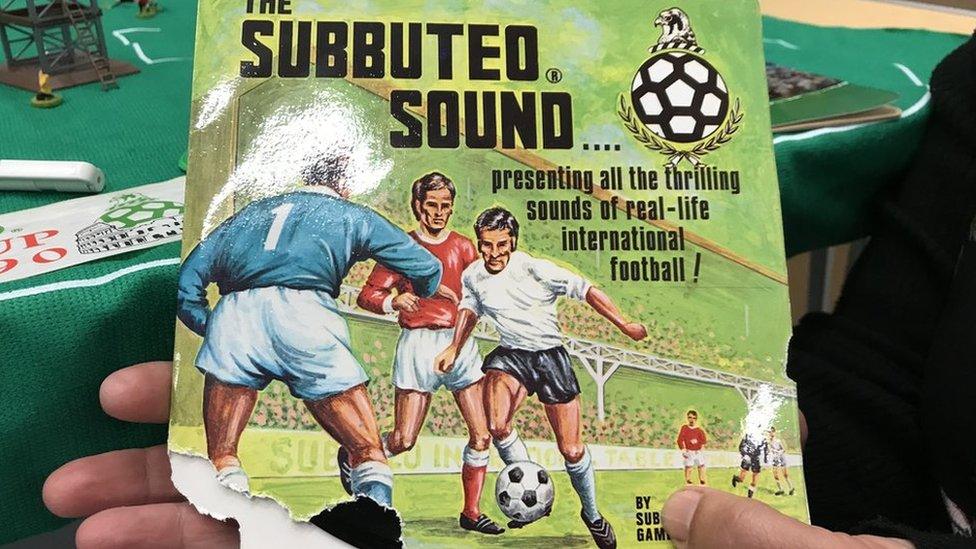
This vinyl album features screaming spectators as well as the Subbuteo World Cup Song with lyrics by Frank Burton
While the game was intended to be friendly and fun, it has at times become as competitive as the real thing with hardcore players testing their dexterity in the Subbuteo World Cup. Merchandise from the international event staged in Rome in 1990 - which coincided with football's World Cup - features in the Leeds collection.
Other objects include detailed books of 1950s instructions for how to play and a photo showing workers at the original Subbuteo factory in Tunbridge Wells from the 1960s.
Kitty Ross says: "For the generations who have played and enjoyed it, Subbuteo has become something of a cult classic and is one of a very select number of games which is instantly recognisable around the world.
"We're extremely fortunate to have such an extensive and impressive collection which documents a fascinating chapter in the story of toys and games and their relationship to Leeds."
The Subbuteo collection is to feature in a special Leeds Museum exhibition next year.

Follow BBC Yorkshire on Facebook, external, Twitter, external and Instagram, external. Send your story ideas to yorkslincs.news@bbc.co.uk, external.
Related topics
- Published27 November 2021
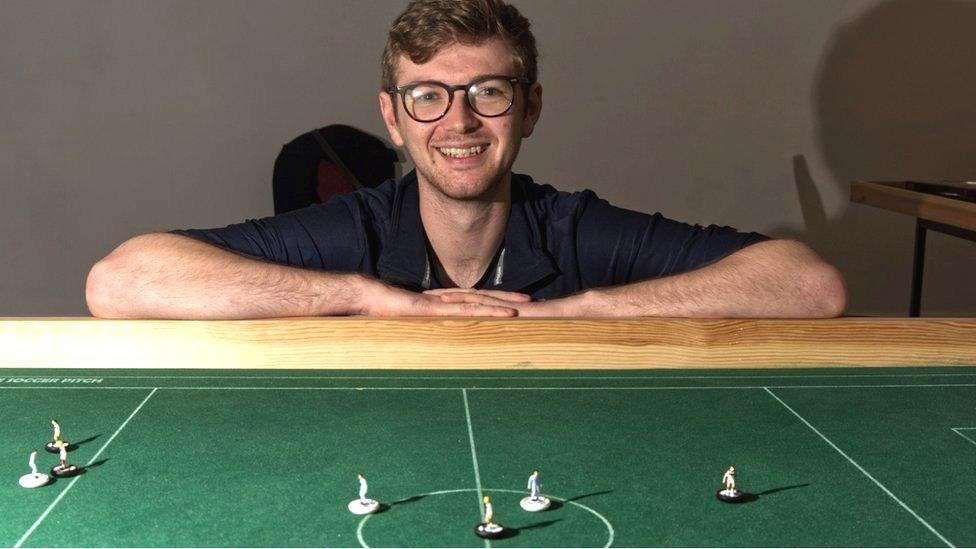
- Published28 May 2018
